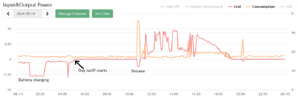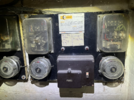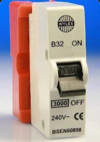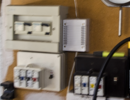- Joined
- 27 Jan 2008
- Messages
- 25,362
- Reaction score
- 2,981
- Location
- Llanfair Caereinion, Nr Welshpool
- Country

I saw a lovely system,
 the diagram is some what simplified, the water stored the energy, in real life two massive water tanks, upstairs, so if electric fails, you still have thermo syphon to cool the solid fuel fire, and the floor is reinforced to take the weight. It was installed when the house was built, and the owner on moving wanted the same system in new house, quoted around £25k, so did not get it installed.
the diagram is some what simplified, the water stored the energy, in real life two massive water tanks, upstairs, so if electric fails, you still have thermo syphon to cool the solid fuel fire, and the floor is reinforced to take the weight. It was installed when the house was built, and the owner on moving wanted the same system in new house, quoted around £25k, so did not get it installed.
And this is the problem, what is your life expectancy? Will it pay for its self in that time?
We should use Joules or Calories to measure energy, but for some reason, we use watt/hours, maybe as we end up with smaller units, but my battery stores 3.2 kWh and cost around £1,100 so to have a battery large enough to heat one run using off peak would be a silly price. So we use bricks or water, there was an experiment using some crystals and latent heat of fusion, but it did not get far.
The brick is basic a lump of iron ore bound together with either clay or cement, it is not standard concrete. The the problem is the temperature used, they get very hot, and near impossible to stop the heat escaping, water is not heated anywhere near the same amount temperature wise, so easier to stop heat escaping. But water takes up more room.
So if you heat the store for 7 hours over night, the release rate is often too high for it to last 17 hours, so economy 10 replace economy 7 and at some point one got a boost, however the split rate means higher peak cost, to get the lower off peak cost, and the longer the off peak, the more is costs, I have off peak for 5 hours.
I went to look at different tariffs, and off peak varies a lot, around 6p to 16p per unit, I pay 8.95p, this means it is no easy task to work out costs, and the big question is, do you need all rooms heated 24/7? If a room is only heated from 6 pm to 11 pm, it will loose less energy to heating it 24/7, so many people have replaced the storage radiator with a simple resistive heater, as it is used for such a short time.
The debate is raging at the moment, as heat pumps typically have a lower output to boilers, my boiler has an output of around 20 kW, a heat pump likely would be half of that, so with a boiler one can heat as required, but heat pump can't allow the home to cool, as it would take so long to reheat.
Even gas v oil, the method changes, gas boilers can turn up/down, oil boilers turn on/off.
But the design of the house will make a huge difference to how to heat. There is no right or wrong, and only you can decide what will work for you.
And this is the problem, what is your life expectancy? Will it pay for its self in that time?
We should use Joules or Calories to measure energy, but for some reason, we use watt/hours, maybe as we end up with smaller units, but my battery stores 3.2 kWh and cost around £1,100 so to have a battery large enough to heat one run using off peak would be a silly price. So we use bricks or water, there was an experiment using some crystals and latent heat of fusion, but it did not get far.
The brick is basic a lump of iron ore bound together with either clay or cement, it is not standard concrete. The the problem is the temperature used, they get very hot, and near impossible to stop the heat escaping, water is not heated anywhere near the same amount temperature wise, so easier to stop heat escaping. But water takes up more room.
So if you heat the store for 7 hours over night, the release rate is often too high for it to last 17 hours, so economy 10 replace economy 7 and at some point one got a boost, however the split rate means higher peak cost, to get the lower off peak cost, and the longer the off peak, the more is costs, I have off peak for 5 hours.
I went to look at different tariffs, and off peak varies a lot, around 6p to 16p per unit, I pay 8.95p, this means it is no easy task to work out costs, and the big question is, do you need all rooms heated 24/7? If a room is only heated from 6 pm to 11 pm, it will loose less energy to heating it 24/7, so many people have replaced the storage radiator with a simple resistive heater, as it is used for such a short time.
The debate is raging at the moment, as heat pumps typically have a lower output to boilers, my boiler has an output of around 20 kW, a heat pump likely would be half of that, so with a boiler one can heat as required, but heat pump can't allow the home to cool, as it would take so long to reheat.
Even gas v oil, the method changes, gas boilers can turn up/down, oil boilers turn on/off.
But the design of the house will make a huge difference to how to heat. There is no right or wrong, and only you can decide what will work for you.




